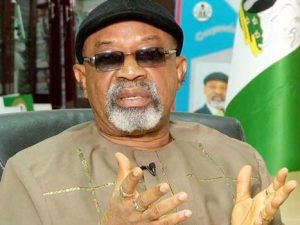
In a recent development, the Nigerian Federal Government has criticized a bill currently under consideration by the National Assembly, aimed at curbing the migration of Nigerian doctors seeking better opportunities abroad. Speaking at an extraordinary Federal Executive Council meeting chaired by Vice President Yemi Osinbajo in Abuja, Minister of Labour and Employment, Senator Chris Ngige, described the proposed legislation as “unworkable” and contradictory to existing labor laws.
The bill, sponsored by House of Representatives member Ganiyu Johnson from Lagos State, seeks to amend the Medical and Dental Practitioners Act to require Nigerian-trained medical and dental practitioners to practice within the country for a minimum of five years before obtaining a full license. The legislation is intended to address the mass exodus of medical professionals from the nation. However, critics argue that it would hinder the progression of medical practice and potentially lead to the “enslavement” of Nigerian doctors.
In response to the bill, the Nigerian Association of Resident Doctors announced plans for a five-day warning strike, demanding a 200% increase in the Consolidated Medical Salary Structure, implementation of CONMESS, domestication of the Medical Residency Training Act, and a review of hazard allowances. The association seeks to engage with relevant government bodies to address their concerns.
Minister Ngige clarified that the bill in question was a private member’s bill and not an executive bill. He stressed that it contradicted established laws governing the medical profession and expressed his strong opposition to its implementation. He called for alternative approaches to address brain drain among healthcare professionals.
Regarding salary negotiations, Minister Ngige highlighted that the Nigerian Medical Association (NMA) represents all doctors in the country. The NMA, in collaboration with the Federal Ministry of Health, the Salaries, Income, and Wages Commission, and the Ministry of Labour, has accepted a salary increase of 25-30% for its members. Minister Ngige urged the NMA to engage with resident doctors to find a mutually agreeable resolution and avert any unnecessary strike action.
During the Federal Executive Council meeting, the Council also approved the universal implementation of the Employee Compensation Act 2010, replacing the previous Employee Compensation Act, commonly known as Workmen Compensation. The law, operated by the Nigeria Social Insurance Trust Fund, aims to ensure the protection and compensation of workers who suffer injuries, accidents, diseases, disabilities, or death while on the job. It also provides provisions for education and support to the affected workers’ families.
This significant development demonstrates the government’s commitment to workers’ rights and upholding the International Labour Organization’s decent work agenda. The universal implementation of the Employee Compensation Act is poised to benefit both the public and private sectors in safeguarding the well-being and welfare of Nigerian workers.

Lagos Assembly Impeaches Speaker Mudashiru Obasa Over Alleged Fraud
Tinubu Urges China To Expand Currency Swap, Boost Africa Aid
God, Hard Work, Honesty Behind My Success – Chizomam Ann Emeje
Why I founded Charlie-Marie Schools And Sport Academy – Adekunbi Akin-Taylor